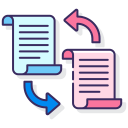 In academic research and scholarly pursuits, the development of a healthy conceptual framework is nothing short of foundational. It serves as the intellectual scaffold upon which the entire edifice of a research endeavor is constructed, providing a clear and structured roadmap for understanding, analyzing, and interpreting complex phenomena. Recognizing the pivotal role that a framework plays in the research process; we proudly present our services as the foremost purveyors. At the heart of our commitment lies an unwavering dedication to assisting scholars, researchers, and students in writing frameworks that are not only coherent but also innovative and insightful. We understand that the process of conceptual framework development can be a discouraging task, requiring a deep understanding of theoretical underpinnings and the ability to synthesize a multitude of ideas into a cohesive whole. That's where our framework writers step in, bringing a wealth of experience and expertise to the table. Our services extend across a wide spectrum of disciplines and research domains, catering to the unique needs and demands of each client. Whether you are embarking on a qualitative or quantitative study, exploring the intricacies of social sciences, or delving into the realms of natural sciences, our experts are equipped with the knowledge and skills to guide you through the framework development process. Research is at the forefront of human progress, and our conceptual framework development services stand as a beacon of support, empowering you to embark on a journey of discovery with confidence and clarity. Welcome to a world where your ideas find their true structure and potential, with the assistance of the best framework writers in the field.
In academic research and scholarly pursuits, the development of a healthy conceptual framework is nothing short of foundational. It serves as the intellectual scaffold upon which the entire edifice of a research endeavor is constructed, providing a clear and structured roadmap for understanding, analyzing, and interpreting complex phenomena. Recognizing the pivotal role that a framework plays in the research process; we proudly present our services as the foremost purveyors. At the heart of our commitment lies an unwavering dedication to assisting scholars, researchers, and students in writing frameworks that are not only coherent but also innovative and insightful. We understand that the process of conceptual framework development can be a discouraging task, requiring a deep understanding of theoretical underpinnings and the ability to synthesize a multitude of ideas into a cohesive whole. That's where our framework writers step in, bringing a wealth of experience and expertise to the table. Our services extend across a wide spectrum of disciplines and research domains, catering to the unique needs and demands of each client. Whether you are embarking on a qualitative or quantitative study, exploring the intricacies of social sciences, or delving into the realms of natural sciences, our experts are equipped with the knowledge and skills to guide you through the framework development process. Research is at the forefront of human progress, and our conceptual framework development services stand as a beacon of support, empowering you to embark on a journey of discovery with confidence and clarity. Welcome to a world where your ideas find their true structure and potential, with the assistance of the best framework writers in the field.
How to transform ideas into a robust conceptual framework
Transforming ideas into a robust framework involves a systematic process of organization and refinement to provide clarity and structure to your concepts. Here are key steps to achieve this:
- Identify the Core Idea: Start by clearly defining the central idea or concept you want to develop. What problem or topic does it address? Ensure it is well-articulated and concise.
- Research and Gather Information: Conduct thorough research to gather relevant information, data, and examples related to your idea. This will help you build a solid foundation for your framework.
- Analyze and Synthesize: Analyze the gathered information to identify patterns, connections, and relationships. Synthesize the key insights and findings into coherent themes.
- Create a Visual Representation: Consider creating a visual representation of your framework, such as a flowchart, diagram, or mind map. Visual aids can help convey complex concepts effectively.
- Define Key Components: Break down your idea into key components, elements, or variables. Clearly define each component and its role within the framework.
- Test and Refine: Share your framework with peers or experts to gather feedback. Use their input to refine and strengthen your conceptual framework.
- Apply and Validate: Apply your framework to real-world scenarios or case studies to validate its effectiveness and relevance. Adjust as necessary based on practical applications.
- Iterate and Evolve: Conceptual frameworks are not static. As you gain more insights or encounter new information, be prepared to iterate and evolve your framework to stay relevant and adaptable.
We can help to develop a conceptual framework that creates clarity in chaos
A conceptual framework is a crucial tool for navigating complexity and bringing clarity to chaotic situations. It serves as a structured blueprint that outlines key concepts, relationships, and guiding principles, enabling individuals and organizations to make sense of intricate problems. We offer the best conceptual framework developing help, as it provides a structured lens through which to view the world, helping to organize information and identify patterns. By defining core concepts and their interconnections, it clarifies the underlying structure of a problem or situation. This, in turn, allows for more informed decision-making, as it uncovers hidden variables and dependencies. Furthermore, a framework aids in communication. It facilitates discussions among diverse stakeholders by providing a common language and a shared understanding of the problem's dimensions. This, in turn, fosters collaboration and alignment of efforts, making it easier to work towards solutions. In chaotic environments, such as rapidly changing industries or complex social issues, a well-constructed conceptual framework becomes indispensable. It brings order to chaos, offering a roadmap for exploring, analyzing, and ultimately addressing the challenges at hand. In doing so, it empowers individuals and organizations to develop strategies, policies, and interventions that are more effective and resilient in the face of uncertainty.
How a conceptual framework is a powerful approach to problem-solving
A framework is a powerful approach to problem-solving because it provides a structured and systematic way to analyze and understand complex issues. It serves as a mental model that helps individuals and organizations make sense of the world, identify key variables, and develop strategies for addressing challenges. Here's why it is so effective:
- Organizes Information: A conceptual framework helps organize and categorize information, allowing individuals to see patterns, relationships, and connections that might not be apparent otherwise.
- Identifies Key Concepts: It helps identify the most critical concepts and factors relevant to a problem, allowing for a more focused and targeted analysis.
- Guides Decision-Making: With a clear framework in place, decision-makers can make informed choices based on a deep understanding of the problem and its implications.
- Promotes Interdisciplinary Thinking: Frameworks encourage interdisciplinary thinking by considering various perspectives and disciplines, enriching problem-solving approaches.
- Enhances Communication: A well-defined framework facilitates effective communication by providing a common language and understanding among stakeholders.
- Facilitates Innovation: It encourages innovative thinking by challenging assumptions and encouraging the exploration of new ideas within the established framework.
- Enables Continuous Improvement: Frameworks can be refined and adapted over time as new information and insights emerge, ensuring ongoing problem-solving effectiveness.
 The development of a framework is an essential step in the research and academic writing process, and seeking help from the best framework writers can make a significant difference in the quality and impact of your work. A well-constructed conceptual framework provides a solid foundation for your research, guiding your study's design, data collection, analysis, and interpretation. Our professional writers bring a wealth of experience and expertise to the table. They can help you clarify your research objectives, identify key variables and relationships, and ensure that your framework aligns with established theories and concepts in your field. Their assistance can save you valuable time and energy, allowing you to focus on the core aspects of your research. Furthermore, engaging our services can enhance the credibility and rigor of your work. Our insights and knowledge can help you avoid common pitfalls and errors in framework development, ensuring that your research is well-grounded and contributes meaningfully to your field. In today's competitive academic landscape, where originality and clarity are paramount, investing in professional help is a wise choice. It not only elevates the quality of your research but also positions you for success in the pursuit of knowledge and the dissemination of your findings. So, if you're looking to enhance the impact and effectiveness of your research, consider enlisting the support of expert framework writers. Your academic journey will undoubtedly benefit from their guidance and expertise.
The development of a framework is an essential step in the research and academic writing process, and seeking help from the best framework writers can make a significant difference in the quality and impact of your work. A well-constructed conceptual framework provides a solid foundation for your research, guiding your study's design, data collection, analysis, and interpretation. Our professional writers bring a wealth of experience and expertise to the table. They can help you clarify your research objectives, identify key variables and relationships, and ensure that your framework aligns with established theories and concepts in your field. Their assistance can save you valuable time and energy, allowing you to focus on the core aspects of your research. Furthermore, engaging our services can enhance the credibility and rigor of your work. Our insights and knowledge can help you avoid common pitfalls and errors in framework development, ensuring that your research is well-grounded and contributes meaningfully to your field. In today's competitive academic landscape, where originality and clarity are paramount, investing in professional help is a wise choice. It not only elevates the quality of your research but also positions you for success in the pursuit of knowledge and the dissemination of your findings. So, if you're looking to enhance the impact and effectiveness of your research, consider enlisting the support of expert framework writers. Your academic journey will undoubtedly benefit from their guidance and expertise.
Help to Design an Outstanding Conceptual Framework | Expert Guide
 Whether in academia or the corporate sector, a solid conceptual framework serves as the keystone for building knowledge, solving problems, and making informed decisions. It's the intellectual scaffolding that underpins every successful project, lending structure and coherence to the pursuit of answers to pressing questions. Writing an outstanding framework is not merely a technical exercise; it is an art that requires a nuanced understanding of the subject matter, research goals, and the intricacies of theory and practice. If you're striving to understand how to create a conceptual framework that stands out, you're in the right place. At Literature Review Help, we provide guidance as this endeavor can be challenging. It is a task that demands a thorough grasp of various disciplines, research methodologies, and critical thinking. However, fret not, for we are here to guide you through this intricate process. Our team of experts specializes in helping individuals and organizations design outstanding conceptual frameworks that not only meet the rigorous standards of academia but also cater to the unique needs of diverse industries. We will take you on a journey of exploration and learning, breaking down the art and science of crafting a conceptual framework. As a novice researcher looking for fundamental insights or an experienced scholar seeking to refine your approach, our expertise will empower you to build a conceptual framework that is not just good but outstanding. We are here to provide expert help with creating a conceptual framework.
Whether in academia or the corporate sector, a solid conceptual framework serves as the keystone for building knowledge, solving problems, and making informed decisions. It's the intellectual scaffolding that underpins every successful project, lending structure and coherence to the pursuit of answers to pressing questions. Writing an outstanding framework is not merely a technical exercise; it is an art that requires a nuanced understanding of the subject matter, research goals, and the intricacies of theory and practice. If you're striving to understand how to create a conceptual framework that stands out, you're in the right place. At Literature Review Help, we provide guidance as this endeavor can be challenging. It is a task that demands a thorough grasp of various disciplines, research methodologies, and critical thinking. However, fret not, for we are here to guide you through this intricate process. Our team of experts specializes in helping individuals and organizations design outstanding conceptual frameworks that not only meet the rigorous standards of academia but also cater to the unique needs of diverse industries. We will take you on a journey of exploration and learning, breaking down the art and science of crafting a conceptual framework. As a novice researcher looking for fundamental insights or an experienced scholar seeking to refine your approach, our expertise will empower you to build a conceptual framework that is not just good but outstanding. We are here to provide expert help with creating a conceptual framework.
The role of conceptual frameworks in interdisciplinary research
Conceptual frameworks play a crucial role in interdisciplinary research by providing a structured approach to understanding complex phenomena that transcend the boundaries of traditional academic disciplines. Here are some key aspects of their role:
- Integration of diverse perspectives: Interdisciplinary research brings together insights and methodologies from multiple fields. A conceptual framework serves as a common language, helping researchers bridge gaps between disciplines and synthesize diverse viewpoints.
- Organizing complexity: Complex interdisciplinary problems often lack a clear structure. Conceptual frameworks offer a way to organize and simplify these issues, making them more manageable for analysis and problem-solving.
- Guiding research questions: Frameworks help researchers formulate focused research questions and hypotheses, providing a roadmap for investigation. They ensure that interdisciplinary studies maintain a sense of purpose and direction.
- Identifying gaps and overlaps: Conceptual frameworks can reveal gaps in knowledge and areas of overlap between disciplines. This insight can inform the development of new research questions and help avoid redundancy.
- Enhancing communication: In interdisciplinary teams, effective communication can be challenging due to diverse terminology and perspectives. A shared framework aids in communication by providing a common reference point and facilitating meaningful discussions.
- Facilitating interdisciplinary education: Conceptual frameworks can be valuable tools in interdisciplinary education, helping students understand the connections between different fields and encouraging critical thinking across disciplines.
The impact of experts’ input on your conceptual framework’s design
Our experts' input has had a profound and invaluable impact on the design of our conceptual framework. Their expertise and insights have acted as a guiding light, illuminating the path toward a more refined and comprehensive framework. With the team, we offer help to design an outstanding conceptual framework. Our rigorous analysis, feedback, and domain-specific knowledge have led to critical refinements, ensuring that our conceptual framework is not only robust but also tailored to address the specific challenges and nuances of our field. Our experts’ input has facilitated the incorporation of cutting-edge concepts and methodologies, enhancing the framework's relevance and effectiveness. Moreover, their critical evaluations have helped identify potential weaknesses and gaps, prompting necessary adjustments and strengthening the overall structure. In essence, our experts' contributions have elevated the quality and depth of our framework, making it a more potent tool for understanding, analyzing, and solving complex problems within our domain.
Steps to follow when designing a conceptual framework
Designing a good framework involves crucial steps. Clearly define the research problem or topic you aim to study, ensuring it is specific and relevant. Also, conduct a thorough literature review to identify existing theories, models, and concepts related to your research area. This will help you build a foundation for your framework. Then, articulate your research objectives and questions, which will guide the development of the framework. Subsequently, identify and select key variables or concepts that are central to your study and establish relationships between them. More so, arrange these variables in a logical and coherent manner, creating a visual representation that illustrates the interconnections. Additionally, consider any contextual factors, such as cultural, historical, or environmental influences, that may impact your framework. Relevantly, validate and refine your framework through discussions with experts, pilot studies, or feedback from peers, ensuring it effectively guides your research and provides a solid theoretical basis for your work.
 Designing an outstanding conceptual framework is a multifaceted endeavor that requires careful consideration, expertise, and creativity. We can help to shed light on the essential elements and steps involved in creating a conceptual framework that can serve as the foundation for research, decision-making, and problem-solving in various fields. we will help you understand the importance of clarity in defining concepts, the need for a strong theoretical foundation, and the significance of aligning the framework with research objectives and questions. Additionally, we will highlight the iterative nature of conceptual framework development, emphasizing the continuous refinement and adaptation as new insights emerge. Furthermore, we recognize the role of experts and interdisciplinary collaboration in shaping a robust conceptual framework, as diverse perspectives can lead to more comprehensive and innovative solutions. Ultimately, an outstanding framework serves as a guiding light that not only enhances understanding but also aids in the creation of meaningful strategies, policies, and solutions. With us, individuals and organizations can harness the power of conceptual frameworks to navigate complex challenges, drive innovation, and achieve their goals more effectively.
Designing an outstanding conceptual framework is a multifaceted endeavor that requires careful consideration, expertise, and creativity. We can help to shed light on the essential elements and steps involved in creating a conceptual framework that can serve as the foundation for research, decision-making, and problem-solving in various fields. we will help you understand the importance of clarity in defining concepts, the need for a strong theoretical foundation, and the significance of aligning the framework with research objectives and questions. Additionally, we will highlight the iterative nature of conceptual framework development, emphasizing the continuous refinement and adaptation as new insights emerge. Furthermore, we recognize the role of experts and interdisciplinary collaboration in shaping a robust conceptual framework, as diverse perspectives can lead to more comprehensive and innovative solutions. Ultimately, an outstanding framework serves as a guiding light that not only enhances understanding but also aids in the creation of meaningful strategies, policies, and solutions. With us, individuals and organizations can harness the power of conceptual frameworks to navigate complex challenges, drive innovation, and achieve their goals more effectively.








 Does your work Require Rewriting Help?
Does your work Require Rewriting Help?